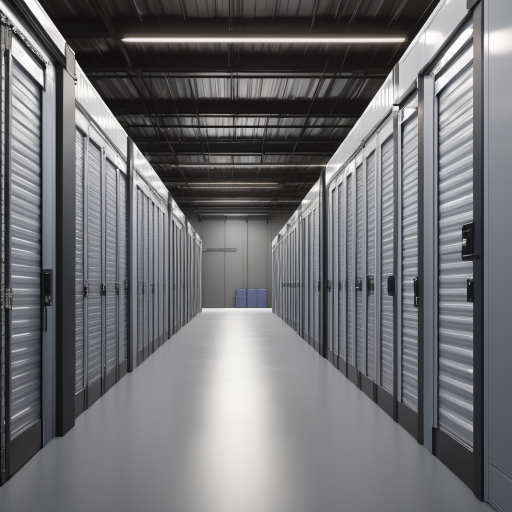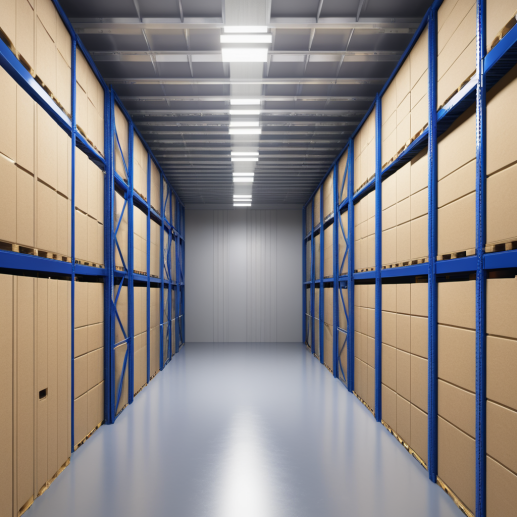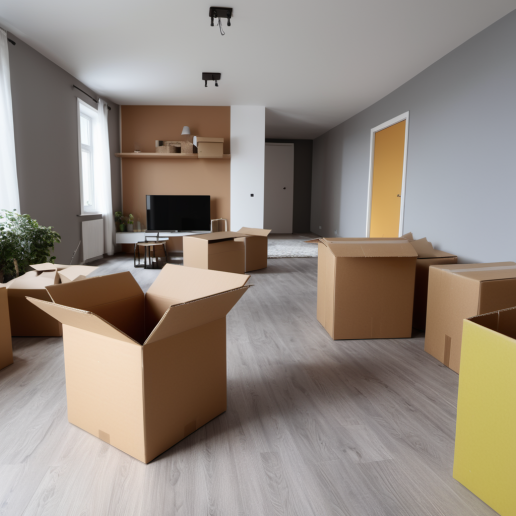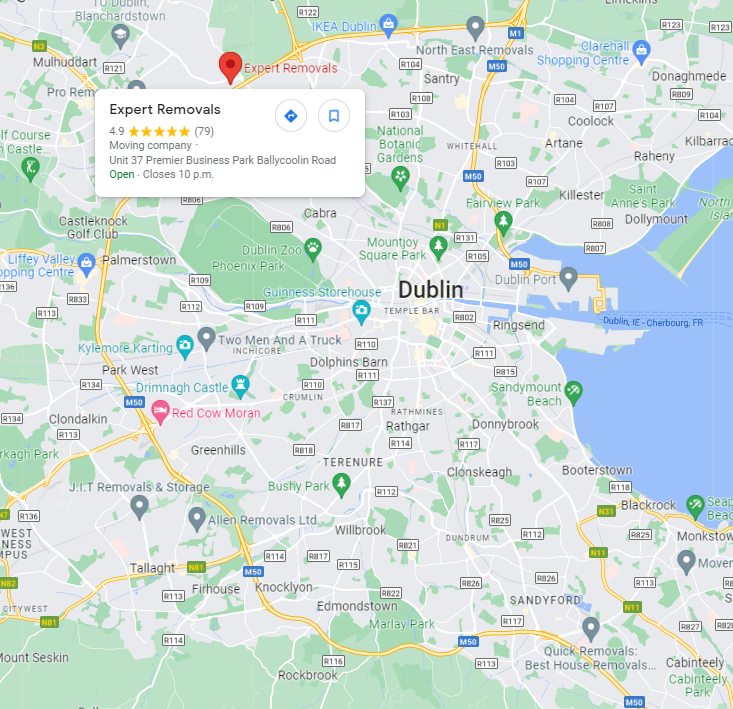Size matters when it comes to choosing the right storage unit for your needs. Selecting the incorrect size could lead to wasted space or not having enough room for your belongings. In this guide, we’ll help you determine the perfect size storage unit based on your requirements and belongings.
Size is one of the most crucial factors to consider when renting a storage unit, as it impacts not only the cost but also the convenience of accessing your items.

By understanding your needs and making an informed decision, you can ensure that you choose the optimal size that will accommodate all your belongings comfortably. Follow our guide to make sure you select the right size storage unit for your items.
The Basics of Storage Unit Sizes
While renting a storage unit may seem like a straightforward task, determining the right size for your needs can be a bit tricky. Understanding the basics of storage unit sizes is necessary to ensure you choose the right unit that fits your belongings comfortably.
Classification of Storage Units
There’s a wide range of storage unit sizes available, ranging from small lockers to large garages. These units are typically classified based on their dimensions, measured in square feet.
Common classifications include small, medium, large, and extra-large units. Small units are suitable for storing a few boxes or small furniture items, while large units are ideal for storing the contents of a multi-bedroom home.
Size Range: From Small Lockers to Large Garages
Clearly, the size range of storage units caters to a variety of needs. Small lockers are perfect for storing seasonal items, sports equipment, or a small number of boxes. Medium-sized units can accommodate the contents of a one-bedroom apartment, including furniture and boxes.
Large units or containers are the go-to choice for storing the belongings of a larger home, such as multiple pieces of furniture, appliances, and boxes.
A common mistake is underestimating the amount of items you need to store, resulting in a cramped unit or the need to rent an additional one. On the other hand, renting a storage unit that is too large can lead to wasted space and unnecessary costs.
It’s crucial to assess your needs accurately and choose a storage unit size that provides enough space for your belongings without overpaying for unused space. At Expert Removals we can provide you the exact size storage unit you need. Just contact us today for a FREE Quote.
Types of Storage Units
One of the first decisions you’ll need to make when renting a storage unit is determining the type that best suits your needs. There are several types of storage units available, each offering different features and benefits. Understanding the differences between these types can help you choose the right one for your storage needs.
- Indoor vs. Outdoor Units
- Climate-Controlled Units
- Drive-Up Access Units
- Vehicle Storage Units
- Specialty Storage Units for Unique Items
Indoor vs. Outdoor Units
Little variations exist between indoor and outdoor storage units. Indoor units are typically located within a building, providing additional protection from the elements. Meanwhile, outdoor units offer drive-up access for convenience.
Which type you choose will depend on your specific needs and preferences. Knowing the difference between these two can help you make an informed decision.
Climate-Controlled Units
Indoor storage units typically offer climate-controlled options, maintaining a steady temperature and humidity level. This feature is crucial for storing items sensitive to temperature changes, such as wooden furniture, electronics, and artwork. Climate-controlled units ensure that your belongings are protected from extreme temperatures, humidity, and other environmental factors.
Climate-controlled units are ideal for: storing antiques, musical instruments, important documents, photographs.
Drive-Up Access Units
Indoor storage facilities may also offer drive-up access units, allowing you to conveniently load and unload your items right from your vehicle.
This feature is beneficial for those needing frequent access to their stored items or heavy items that are challenging to carry long distances. Drive-up access units provide ease and efficiency when interacting with your belongings.
Storage units with drive-up access are perfect for: large furniture, boxes of heavy items, business inventory.
Vehicle Storage Units
Units designed specifically for vehicle storage are available for those needing to store cars, boats, RVs, or motorcycles. These units are typically larger in size and offer additional security features tailored to vehicle storage. This type of storage is a popular choice for those looking to free up space in their driveway or garage.
A vehicle storage unit can be a great choice for: seasonal vehicles, classic cars, recreational vehicles.
Specialty Storage Units for Unique Items
To cater to unique storage needs, some facilities offer specialty units designed for specific items like wine, art, or even business inventory. These units often come with additional features like extra security, specialized shelving, or climate control.
Whether you have specialized items or simply want added peace of mind, specialty storage units can provide a customized storage solution.
Units for unique items are vital for: wine collectors, art aficionados, business owners with specific storage requirements.
Factors to Consider Before Renting a Storage Unit
Your decision to rent a storage unit should be informed by several key factors that will help you choose the right size and type of storage for your needs. Consider the following before making a final decision:
Inventory of Items to Store
Now, before opting for a storage unit, carefully assess the inventory of items you plan to store. Make a detailed list of all items to ensure you have a clear idea of how much space you will require.
Size of Items and How to Maximize Space
Inventory. Think about the size of your items and how to maximize the space within the storage unit. Consider using shelves, stackable bins, or furniture that can double as storage to make the most of the space you have.
A well-organized storage unit not only helps maximize space but also makes it easier to access items when needed, saving you time and effort in the long run.
Duration of Storage
Consider how long you plan on storing your items. If it’s for a short period, you may be able to make do with a smaller unit. However, for long-term storage needs, it may be more cost-effective to rent a larger unit from the start.

Access Requirements
Access. Evaluate how often you will need to access your stored items. If you anticipate frequent visits, opt for a storage facility that offers extended hours or 24/7 access to ensure convenience.
Location and Convenience
The location of the storage facility plays a crucial role in your overall experience. Choose a facility that is conveniently located near your home or work to make accessing your items hassle-free.
Security Features
When storing valuable or important items, prioritize facilities with robust security features such as surveillance cameras, gated access, and on-site staff to ensure your belongings are safe and secure.
Cost Considerations
Compare the costs of different storage units and consider the items you plan to store. Investing in a slightly larger unit with added features like climate control may be worth it to protect sensitive items in the long run.
Step-by-Step Guide to Choosing a Storage Unit
Unlike other decisions, selecting the right storage unit requires careful consideration and assessment of your needs. By breaking down the process into manageable steps, you can make a well-informed choice that suits your requirements perfectly.
Assessing Your Storage Needs
| Choosing | Details |
| Size of Items | Determine the dimensions and quantities of items you plan to store. |
| Duration of Storage | Decide on how long you will need the storage unit to ensure you choose the right contract length. |
Research and Compare Facilities
Storage facilities vary in terms of amenities, security measures, and pricing. It is important to explore different options and compare them to find the facility that meets your specific needs.
| Storage | Details |
| Amenities | Look for features like climate control, 24/7 access, and on-site security for added convenience and protection. |
| Pricing | Compare rental rates and any additional fees to find the most cost-effective option for your budget. |
Visit Potential Storage Units
Step-by-step, visit potential storage units to get a firsthand look at the facilities. This will help you assess the condition, security measures, and overall suitability of the storage units for your belongings.
One of the important aspects to consider during your visits is the cleanliness and organization of the facility. A well-maintained storage unit indicates a high level of care and security for your items.
Review Contract Terms and Conditions
Compare the contracts offered by different facilities to understand the terms and conditions associated with renting a storage unit. This step is crucial to avoid any surprises or misunderstandings down the road.
Assessing the details such as rental duration, payment schedules, and penalties for late payments is important to ensure a smooth rental experience without any unexpected issues.
Finalize the Rental Agreement
With careful consideration and thorough evaluation, finalize the rental agreement with the storage facility that best meets your needs. Make sure all terms and conditions are clearly understood and agreed upon before signing the contract.
Guide yourself through the finalization process by reviewing all the important sections of the agreement and seeking clarification on anything that appears unclear.
What Size Storage Unit Do I Need?
Keep in mind that choosing the right size storage unit is crucial to ensure you have enough space for your belongings without overpaying for unused space. Consider the items you plan to store and how much space they will occupy. Here is a helpful guide to determine the ideal size for your storage needs.
Small Units: Ideal for Boxes, Seasonal Items, or Small Furniture
Some individuals may only need a small storage unit to store boxes, seasonal items, or small furniture pieces. These units typically range from 5×5 to 5×10 feet in size and are perfect for those who are looking to declutter their homes or store a few belongings during a move. It’s important to pack efficiently to maximize the space in a small unit and utilize vertical space with shelving units.
Medium Units: Perfect for Small Apartments or Business Inventory
Apartments or small businesses with moderate storage needs can benefit from medium-sized units, typically ranging from 10×10 to 10×15 feet. These units are ideal for storing the contents of a small apartment, including furniture, appliances, and several boxes. Business owners can also use medium units to store excess inventory, documents, or office equipment. Renting a medium-sized unit allows for easy access to your belongings while keeping them secure.
Units of this size provide enough space to accommodate the contents of a one-bedroom apartment or serve as a convenient storage solution for businesses that require extra space for inventory. Make sure to organize your items efficiently within the unit to access them easily when needed.
Large Units: Suitable for Whole House Contents or Vehicle Storage
Assuming you have a substantial amount of items to store, such as the contents of a whole house or even a vehicle, a large storage unit may be the best option. These units typically range from 10×20 to 10×30 feet in size and offer ample space for furniture, appliances, multiple boxes, and larger items like vehicles or recreational equipment. Consider the convenience and flexibility of a large unit when planning a long-term storage solution for your belongings.
Furniture and other large items can be safely stored in these units, providing protection from weather elements and potential damage. Keep in mind the accessibility of your items within the unit and consider using pallets or shelves to keep your belongings off the floor and organized.
Specific Size Recommendations
What Size Storage Unit Do I Need for a 4 Bedroom House
Many factors come into play when determining the appropriate size storage unit for a 4-bedroom house. Typically, a 10×20 unit is recommended for this purpose. This size is ideal for storing the contents of a 4-bedroom house, including furniture, appliances, and multiple boxes.
What Size Storage Unit Do I Need for a 3 Bedroom House
With a 3-bedroom house, you might find that a 10×15 unit is sufficient for your storage needs. This size can comfortably hold the furnishings and belongings from a 3-bedroom home, allowing for some extra space to maneuver around items.
What you need to consider when deciding on the size of your storage unit for a 3-bedroom house is the volume of items you have. It’s important to pack efficiently and utilize the space wisely to make the most of the storage unit.
What Size Storage Unit Do I Need for a 2 Bedroom House
There’s a common recommendation of a 10×10 unit for a 2-bedroom house. This size provides ample space for furniture, boxes, and miscellaneous items from a moderate-sized home.
A key factor to keep in mind for a 2-bedroom house storage unit is to stack items vertically to maximize the space and keep pathways clear. This organization technique will help you access your belongings easily when needed.
What Size Storage Unit Do I Need for a Car
Need to store a car? A 10×20 unit is typically recommended for this purpose. This size allows for enough space to accommodate a vehicle along with some additional storage for smaller items or tools.
Plus, when storing a car in a unit, it’s crucial to take preventive measures such as placing the car on blocks to prevent flat spots on the tires and using a car cover to protect it from dust and moisture.

What Size Storage Unit Do I Need for a Motorcycle
Size matters when storing a motorcycle. A 5×10 unit is generally sufficient for storing a motorcycle securely. This size offers enough space for a standard-sized motorcycle, plus a few additional items.
Size constraints can be a concern when storing a motorcycle in a unit, so it’s crucial to measure your bike and ensure it fits comfortably within the unit to avoid any damage or constraints.
What Size Storage Unit Do I Need for a 1 Bed Apartment
While many opt for a 5×5 unit for a 1-bedroom apartment, a 5×10 unit provides extra space for larger furniture items and more boxes. This size allows for more flexibility in storing items from a smaller living space.
Need to make the most of the space in a 1-bedroom apartment storage unit? Consider using shelves and stackable containers to optimize vertical storage and keep your belongings organized and accessible.
Tips to Maximize Your Storage Unit Space
Despite the size of the storage unit you rent, it’s crucial to make the most of the space available. Efficiently packing your belongings and strategically organizing the unit can help you maximize every square foot. Knowing how to protect your items during storage is just as important.
Efficient Packing Techniques
If you want to make the most out of your storage unit, efficient packing techniques are key. Start by using sturdy boxes and containers that are uniform in size to stack easily. Label each box with its contents to find items quickly when needed. Utilize all the space in furniture items by storing smaller items inside drawers and cabinets. Consider disassembling large furniture pieces to save space and protect them from damage.
Strategically Organizing Your Unit
The way you organize your storage unit can significantly impact how much you can fit into it. Take advantage of vertical space by placing heavy and sturdy items at the bottom and lighter items on top. Leave walkways to access items throughout the unit easily. Consider creating aisles and grouping similar items together for better organization.
Keeping frequently used items near the front can also save you time when retrieving them. The key to efficiently organizing your storage unit is to have a clear plan in mind before you start moving items in. By strategically placing items and maximizing the space, you can ensure that you can fit everything you need while still being able to access it easily.
Storing Vertically to Save Space
Space-saving tip: Storing vertically is a game-changer when it comes to maximizing your storage unit space. Use shelves, bookcases, and racks to stack boxes and containers upwards. Invest in tall storage units or shelving to take advantage of the height of the unit. By storing vertically, you can free up valuable floor space and fit more items into the unit without overcrowding it. Efficient use of vertical space not only saves floor space but also helps you stay organized.
Consider installing shelving units or racks to keep items off the ground and easily accessible. Make sure to secure items properly to prevent any accidents or damage from items falling.
Protecting Your Items During Storage
With the potential for long-term storage, protecting your items is a top priority. Choose a storage unit with climate control to prevent damage from extreme temperatures. Use plastic bins to protect items from dust and moisture. Wrap fragile items in bubble wrap or packing paper to prevent breakage during the moving process.
Plus, remember to leave space between items to allow for air circulation and prevent mold or mildew. Using storage shelves can also help protect your items by keeping them off the ground. By taking the extra steps to protect your items during storage, you can ensure they remain in good condition until you need them again.
Pros and Cons of Different Storage Unit Sizes
After deciding to rent a storage unit, the next step is to determine what size unit will best suit your needs. Each size comes with its own set of pros and cons, so it’s vital to weigh them carefully before making a decision.
Small Units: Affordability vs. Space Limitations
There’s a balance to strike when considering a small storage unit. On the one hand, they are typically more affordable than larger units, making them an attractive option for those on a budget. However, the downside is the limited amount of space available. Small units may not be suitable for those looking to store larger items or multiple pieces of furniture.
Pros: Affordable, perfect for storing seasonal items or small furniture pieces.
Cons: Limited space, may not accommodate larger items.

Medium Units: Flexibility vs. Potential Unused Space
An intermediate option between small and large units, medium-sized storage units offer a balance of flexibility and space. They are versatile enough to accommodate a variety of items, from boxes to furniture. However, there is the potential for unused space if the unit is not filled to capacity.
Pros: Versatile, suitable for a wide range of storage needs.
Cons: Potential for unused space if not filled to capacity.
Medium units provide the flexibility to store items of various sizes while still being manageable in terms of cost and space. It’s important to assess your storage needs accurately to make the most of the space available.
Large Units: Ample Space vs. Higher Cost
Units on the larger end of the spectrum offer ample space for storing significant quantities of items, including furniture, appliances, and even vehicles. However, with this increased space comes a higher cost. Large units may be more suitable for those with extensive storage needs, office storage or those looking to store bulky items.
Pros: Spacious, suitable for storing large quantities and bulky items.
Cons: Higher cost, may be more space than needed for some users.
To make the most of a large storage unit, it’s crucial to plan and organize your items effectively to maximize the space and avoid unnecessary expenses. Assessing your storage needs accurately will help you determine whether a large unit is the right choice for you.
Additional Considerations and Services
Insurance for Your Stored Items
To protect your belongings while they are in storage, insurance is necessary. Many storage facilities offer insurance options to cover your items in case of damage, theft, or other unforeseen circumstances. It is highly recommended that you inquire about insurance options and consider purchasing a policy to provide peace of mind during the storage period.
Moving Truck Rentals and Assistance
Any successful move requires a reliable moving truck to transport your items to and from the storage unit. Some storage facilities offer moving truck rental services or can assist you in finding a reputable rental company. Having access to a suitable moving truck can make the moving process much smoother and more efficient.
Renting a moving truck can be a cost-effective and convenient option, especially if you are relocating a significant amount of items. Make sure to inquire about the availability, size, and cost of the moving truck rentals provided by the storage facility.
Monthly vs. Long-Term Rental Options
Even though you may initially only need a storage unit for a short period, consider the monthly vs. long-term rental options offered by the storage facility. Some facilities provide discounts for long-term rentals, which could potentially save you money in the long run.
Storage Unit Maintenance and Upkeep
Long-term storage unit maintenance and upkeep are crucial to ensure the safety and preservation of your belongings. Regular checks for pests, mold, and structural issues can prevent damage to your items. Additionally, maintaining a clean and organized storage unit will make it easier to access your belongings when needed.
The Storage Unit For You
Choosing the right storage unit size is crucial to ensure that your items are safely and securely stored without wasting money on unnecessary space. By accurately assessing your storage needs based on the size and quantity of your items, you can determine the perfect unit size that suits your requirements.
Remember to take into consideration potential future storage needs to ensure that you select a unit that will accommodate your belongings in the long run.
By following the tips and guidelines provided in this beginner’s guide, you can confidently select the ideal storage unit size that best fits your needs and budget. With proper planning and organization, you can make the most of your storage space and ensure that your belongings are kept safe and accessible whenever you need them.
